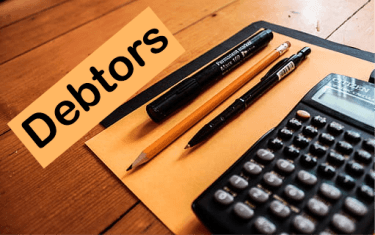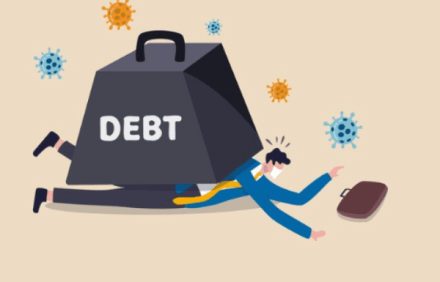DebtorWhat is a Debtor?A firm or person that owes money is referred to as a debtor. If the debt is in the form of a loan from a financial institution, the debtor is referred to as the borrower, and if the debt is in the form of securities like bonds, the debtor is referred to as the issuer. Legally, a person who voluntarily files a petition for bankruptcy is also regarded as a debtor. 
Recognizing DebtorsNot paying a bill on time is not illegal. Debtors are free to prioritize their debt repayments, except in certain bankruptcy circumstances. However, if they don't adhere to the conditions of their debt, they risk incurring costs and penalties and having their credit scores suffer. In addition, the creditor can prosecute the debtor in court. It may also result in encumbrances or liens. Creditors and DebtorsThe opposite of a debtor is a creditor. Debtors only receive credit from creditors. Like debtors, creditors can be either a person or an organization. Companies that offer supplies might also be creditors. When a business provides goods or services to collect payment later, it functions in the capacity of a creditor. In addition, relatives or friends may also be regarded as creditors or personal creditors if they have lent money. Banks or financial businesses with valid contracts are the actual creditors. By levying fees or interest on debtors, creditors secure or earn profit. Example of a DebtorConsider Sally, who wants a mortgage loan to purchase a house. To finance a property, she collaborates with a bank. She finally gets a $250,000 loan. Sally is now in debt to the bank and owes them $250,000. Her bank is the creditor. Mortgages employ the property (in this case, Sally's home) as security for the loan. If Sally doesn't pay back the loan, the bank has the right to seize and sell the property to cover its debt. For unpaid debts, are debtors punished by jail?Debtors' prisons were relatively widespread in the United States until the Civil War. However, most states began to phase them out afterwards. Debtors do not now face jail time for unpaid consumer debt like credit cards or medical bills. The Fair Collection Procedures Act (FDCPA), a body of rules controlling debt practices, prevents bill collectors from threatening debtors with jail time. However, the courts can still imprison debtors for unpaid taxes. But, debtors are usually asked to repay with penalties in the specified time. 
There are occasionally exceptions to this rule. For instance, in some jurisdictions, if a debtor who has been ordered by the court to make a payment misses one, he/ she is declared in contempt of court, which may eventually lead to a jail sentence. Thus, the person is essentially imprisoned for being a debtor. In some cases, the court may also order to adjust or collect repayment by selling off the debtor's property or other assets. Which laws defend debtors?One consumer protection law to protect debtors is the FDCPA, which stands for the Fair Debt Collection Practices Act. This law specifies when, where, and how frequently bill collectors may contact debtors. The privacy and other rights of the debtor are also highlighted. However, this rule only applies to firms that seek to collect debts on behalf of other businesses or people, such as third-party debt collection agencies. What can be done by a creditor if a debtor is not paying?Creditors might take legal action to get their money back if a debtor doesn't pay. The creditor may try to seize the collateral if the debt is secured by it, as is the case with mortgages and auto loans secured under the real estate and vehicles categories, respectively. In other situations, the creditor might sue the debtor to obtain a payback order of some kind or to have the debtor's earnings garnished. |
 For Videos Join Our Youtube Channel: Join Now
For Videos Join Our Youtube Channel: Join Now
Feedback
- Send your Feedback to [email protected]
Help Others, Please Share










